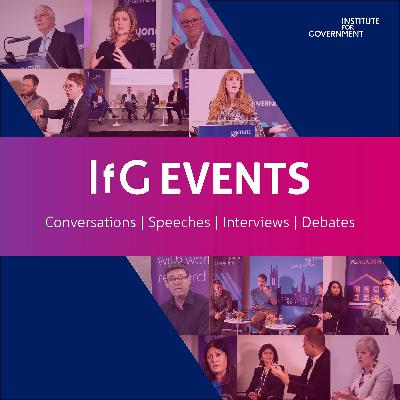The IfG team headed to Birmingham to explore how mayors can secure and deliver private investment into their regions in pursuit of growth and regeneration.
The IfG DevoLab is a new initiative from the Institute for Government dedicated to exploring the innovations enabled by devolution, learning from the results, and sharing the lessons so that places can take better decisions about how to use devolved powers and budgets.
IfG DevoLab #2 saw speakers from three regions – West Midlands, Greater Manchester, and the North East – set out how the powers and profile of mayors and the convening role of strategic authorities have been used to secure and deliver private investment for key regional strategic projects.
‘Investing in the West Midlands: The Birmingham Sports Quarter’, Jonathan Gibson, Interim Director of Strategy at the West Midlands Combined Authority
‘Investing in Greater Manchester: The Sister Innovation District, Robert Edwards, Deputy Director of Investment at the Greater Manchester Combined Authority
‘Investing in the North East’, Dr Henry Kippin, Chief Executive of the North East Combined Authority
The three presenters were joined on the panel by Julia Goldsworthy, Head of Social Impact Investment at L&G, and former Director of Strategy at West Midlands Combined Authority, for a broader discussion on the benefits of devolution and mayoral leadership, the lessons less mature devolved regions can learn from those further along in the journey, and whether further devolution can accelerate growth.
This event was chaired by Akash Paun, Programme Director at the Institute for Government, with an introduction by Hannah White, CEO of the Institute for Government.
Insights from this discussion informed a published policy briefing containing the three case studies and a synthesis of key lessons.
The Institute for Government would like to thank L&G for its support of this event and its wider support of the IfG DevoLab series.
Learn more about your ad choices. Visit podcastchoices.com/adchoices










Absolutely brilliant!